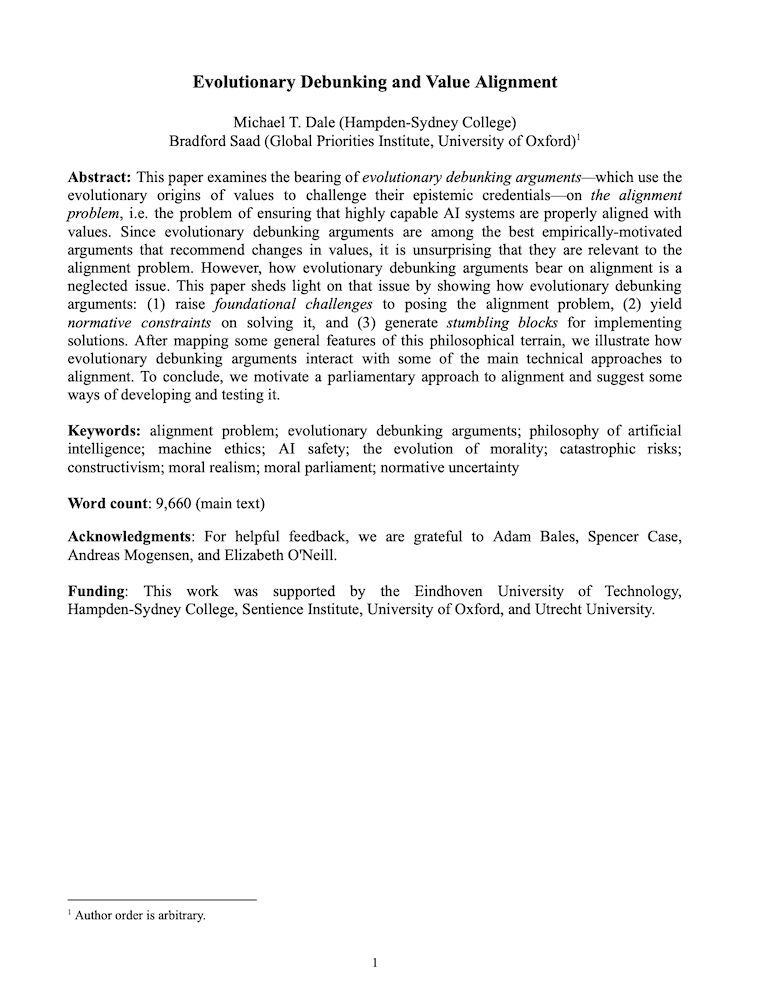Evolutionary debunking and value alignment
Michael T. Dale (Hampden-Sydney College) and Bradford Saad (Global Priorities Institute, University of Oxford)
GPI Working Paper No. 11-2024
This paper examines the bearing of evolutionary debunking arguments—which use the evolutionary origins of values to challenge their epistemic credentials—on the alignment problem, i.e. the problem of ensuring that highly capable AI systems are properly aligned with values. Since evolutionary debunking arguments are among the best empirically-motivated arguments that recommend changes in values, it is unsurprising that they are relevant to the alignment problem. However, how evolutionary debunking arguments bear on alignment is a neglected issue. This paper sheds light on that issue by showing how evolutionary debunking arguments: (1) raise foundational challenges to posing the alignment problem, (2) yield normative constraints on solving it, and (3) generate stumbling blocks for implementing solutions. After mapping some general features of this philosophical terrain, we illustrate how evolutionary debunking arguments interact with some of the main technical approaches to alignment. To conclude, we motivate a parliamentary approach to alignment and suggest some ways of developing and testing it.
Other working papers
Funding public projects: A case for the Nash product rule – Florian Brandl (Stanford University), Felix Brandt (Technische Universität München), Dominik Peters (University of Oxford), Christian Stricker (Technische Universität München) and Warut Suksompong (National University of Singapore)
We study a mechanism design problem where a community of agents wishes to fund public projects via voluntary monetary contributions by the community members. This serves as a model for public expenditure without an exogenously available budget, such as participatory budgeting or voluntary tax programs, as well as donor coordination when interpreting charities as public projects and donations as contributions. Our aim is to identify a mutually beneficial distribution of the individual contributions. …
Population ethics with thresholds – Walter Bossert (University of Montreal), Susumu Cato (University of Tokyo) and Kohei Kamaga (Sophia University)
We propose a new class of social quasi-orderings in a variable-population setting. In order to declare one utility distribution at least as good as another, the critical-level utilitarian value of the former must reach or surpass the value of the latter. For each possible absolute value of the difference between the population sizes of two distributions to be compared, we specify a non-negative threshold level and a threshold inequality. This inequality indicates whether the corresponding threshold level must be reached or surpassed in…
Moral uncertainty and public justification – Jacob Barrett (Global Priorities Institute, University of Oxford) and Andreas T Schmidt (University of Groningen)
Moral uncertainty and disagreement pervade our lives. Yet we still need to make decisions and act, both in individual and political contexts. So, what should we do? The moral uncertainty approach provides a theory of what individuals morally ought to do when they are uncertain about morality…

